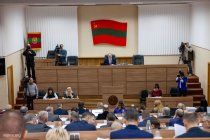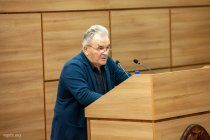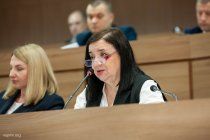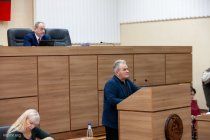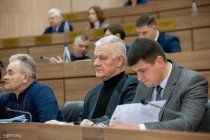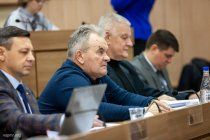 Русский
Русский English
English-







New measures to solve systemic problems in the education sphere
A package of legislations that the deputies supported at the plenary session in the first reading by a majority of votes is intended to keep young specialists who studied at universities and technical schools on a budgetary basis in the republic. The authors of the legislative initiative are deputies of the Committee on Education, Public Associations and Mass Media Igor Buga, Andrey Safonov and Pavel Shinkaryuk.
According to the current legislation, a student of an organization of higher or secondary vocational education who studied on a budget, after receiving a diploma, must either work in his specialty for one to three years (and for medical students - from three to five years), or reimburse the state for funds spent by the state on his education. The Ministry of Education and the educational institution, in turn, undertake to employ the graduate in the specialty they have received. However this mechanism in practice proved to be insufficiently effective. More than two hundred and fifty graduates of state-funded technical schools and universities did not start work on distribution only this year.
The legislative initiative of a group of deputies proposes to consolidate the norm, according to which diplomas of graduation from universities and technical schools will be issued only after mandatory working out by distribution.
Several parliamentarians spoke out against the adoption of this package of legislations. The deputies expressed concern during the discussion that the proposed measures would lead to an even greater outflow of young people from Pridnestrovie and to the unwillingness of children to receive education in Pridnestrovian educational institutions. The authors of the law-in-draft explained that the measure is forced. The problem is systemic, so it needs to be addressed systematically. The need for change has been around for a long time. The legislations under consideration are part of a holistic state policy in the field of education. It is important to provide education opportunities for children who are ready to work in their area or village, for example, as a teacher, nurse or agronomist.
Work will continue on legislations on amending several laws at once in the second reading: the PMR Law “On Education”, the PMR Law “On the Development of Primary and Secondary Vocational Education”, the PMR Law “On Higher and Postgraduate Vocational Education”, as well as the Labor Code PMR. The deputies, together with the Government, will have to seriously work on amendments so that the new norms can fully protect both the rights of the state and the rights of students.


